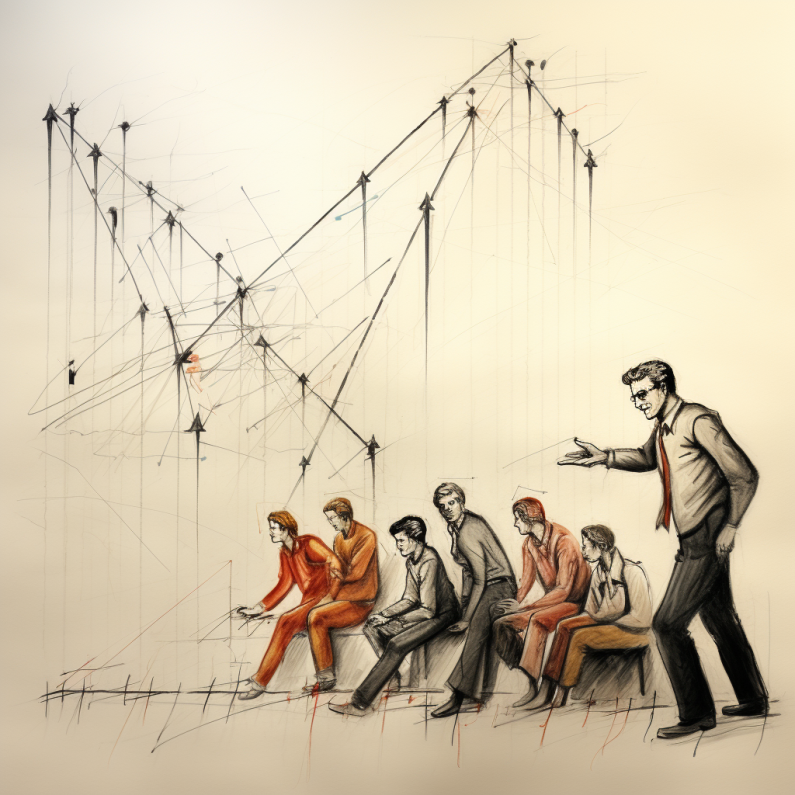Introduction and Foundational Concepts
What is Montaigne’s theory of education?
Montaigne’s educational theory centered on developing judgment and practical wisdom rather than mere accumulation of facts. His core principles emphasized individualized instruction tailored to each student’s capacities and learning styles, rejecting one-size-fits-all approaches. He advocated for experiential and practical learning through hands-on experience, travel, and direct observation rather than rote memorization. Critical thinking and judgment took precedence over fact accumulation, teaching students how to think rather than what to think. He saw character formation as essential as academic achievement, believing wisdom and virtue were inseparable from education. Learning should be natural rather than forced, nurturing students’ curiosity. He prioritized practical application over theoretical knowledge, believing true understanding comes from real-world contexts.
What was Michel de Montaigne’s motto?
Montaigne’s personal motto was “Que sais-je?” which means “What do I know?” in French. This motto perfectly encapsulated his philosophical approach of questioning and skepticism. It reflected his belief in the importance of constant inquiry and the recognition of human limitations in knowledge.
This motto appeared on his personal seal and throughout his writings, serving as a foundational principle of his essays. It represented his commitment to intellectual humility and his rejection of dogmatic certainty in favor of continuous questioning and learning.
The motto also aligns with his educational philosophy, suggesting that true wisdom comes from acknowledging the limits of our understanding rather than claiming absolute knowledge. This perspective continues to influence modern approaches to critical thinking and self-reflection in education.
What was Montaigne’s famous quote?
One of Montaigne’s most famous quotes about education is: “Better a well-formed head than a well-filled one.” This encapsulates his philosophy that education should focus on developing judgment and understanding rather than merely accumulating facts.
He also notably said: “The greatest and most important difficulty in human knowledge seems to lie in the branch of knowledge which deals with the upbringing and education of children.” This reflects his deep concern with the challenges and importance of proper education.
Another significant quote that captures his educational philosophy is: “Children should be taught not the facts, but how to deal with facts.” This emphasizes his focus on developing critical thinking skills over rote memorization.
What kind of education did Montaigne value?
Montaigne valued education that fostered independent thinking and moral development, emphasizing:
- Learning through travel and direct experience of different cultures and customs
- Education that developed good judgment and moral character rather than just academic knowledge
- Conversational learning through dialogue with teachers and peers
- Physical education alongside intellectual development
He particularly emphasized the importance of learning foreign languages through immersion and conversation rather than formal grammar study. For Montaigne, education should be gentle and enjoyable, avoiding harsh discipline or forced memorization.
His ideal educational environment encouraged:
- Open discussion and debate
- Learning from direct observation of the world
- Development of social skills and worldly wisdom
- Cultivation of curiosity and love of learning
Montaigne believed the best education combined books with real-world experience, theory with practice, and intellectual development with character formation.
What are Montaigne’s views about the capacity of individual students to learn?
Montaigne viewed individual students’ capacity to learn through several key lenses:
He emphasized that each student possesses unique intellectual potentials that manifest differently. Rather than seeing this variation as problematic, he considered it natural and valuable. Teachers, in his view, should act as guides who help uncover and nurture these individual capacities rather than trying to force all students into the same mold.
His perspective challenged traditional educational approaches by suggesting that learning difficulties often stemmed from inappropriate teaching methods rather than student limitations. He believed that when education is properly tailored to individual needs and natural inclinations, most students could develop significant intellectual capabilities.
This view was revolutionary for his time, as it shifted focus from student “deficiencies” to the responsibility of educators to find effective teaching approaches. He advocated for flexible, adaptable instruction that would allow each student to develop according to their own nature and pace.
What did Nietzsche think of Montaigne?
Nietzsche held Montaigne in high regard, considering him a kindred spirit in philosophical skepticism and intellectual honesty. Their connection reveals several key aspects:
- Nietzsche admired Montaigne’s authenticity and rejection of dogmatic thinking, seeing him as a model of free-spirited inquiry
- He appreciated Montaigne’s style of personal, experiential philosophy that didn’t try to construct grand systematic theories
- Montaigne’s emphasis on self-knowledge and constant questioning aligned with Nietzsche’s own philosophical approach
- Both thinkers shared a skepticism toward conventional morality and traditional philosophical systems
Nietzsche specifically praised Montaigne as one of the few authors who wrote with genuine honesty about themselves and human nature. He saw in Montaigne’s essays a celebration of life and individual experience that resonated with his own philosophical project. Their shared emphasis on questioning accepted truths and valuing personal experience over abstract theory created a philosophical kinship across centuries.
How does Montaigne’s emphasis on experiential learning compare to modern educational technology and online learning platforms?
Montaigne’s emphasis on experiential learning presents both interesting parallels and contrasts with modern educational technology and online learning platforms. This comparison reveals both the enduring wisdom of his approach and the unique challenges of adapting experiential learning to digital environments.
Modern educational technology has created unprecedented opportunities for experiential learning that Montaigne could not have imagined. Virtual reality simulations, interactive laboratories, and immersive learning environments allow students to “experience” historical events, scientific phenomena, and complex processes in ways that extend beyond traditional classroom boundaries. These technologies align with Montaigne’s belief that direct experience leads to deeper understanding and retention.
A fundamental tension exists between Montaigne’s conception of experiential learning and many current online learning platforms. While Montaigne emphasized physical interaction, sensory engagement, and real-world application, many online platforms still rely heavily on screen-based, passive content consumption. This creates a potential disconnect between his vision of hands-on learning and the often sedentary nature of digital education.
Innovative online platforms are finding ways to bridge this gap. Project-based learning platforms, virtual field trips, and augmented reality applications create hybrid experiences that combine digital tools with real-world engagement. These approaches attempt to honor Montaigne’s principles while leveraging modern technology’s capabilities.
Social learning aspects of online platforms also reflect Montaigne’s ideas about learning through dialogue and interaction. Discussion forums, collaborative projects, and peer-review systems enable students to engage in the kind of intellectual exchange that Montaigne valued, albeit in a digital format. Video conferencing and virtual collaboration tools have expanded these possibilities, especially in the wake of global changes in educational delivery.
The accessibility and scalability of online learning platforms also present interesting considerations when viewed through Montaigne’s lens. While he advocated for highly individualized instruction, modern technology can paradoxically both support and hinder this goal. Adaptive learning systems and personalized learning paths align with his emphasis on individual needs, but the standardization often required for large-scale online education can conflict with his vision of tailored instruction.
Montaigne’s emphasis on developing judgment and critical thinking finds new relevance in the context of digital literacy. Online learning platforms must not only deliver content but also help students develop the discernment needed to navigate vast amounts of information – a modern manifestation of Montaigne’s focus on developing wisdom rather than merely accumulating knowledge.
The most successful integration of Montaigne’s principles with modern educational technology occurs when platforms serve as tools for facilitating real-world experiences rather than replacing them entirely. This hybrid approach honors his emphasis on direct experience while leveraging technology’s unique capabilities to enhance and extend learning opportunities.
In what ways do Montaigne’s views on individual learning styles align with current personalized learning approaches and adaptive educational software?
Key Principles from Montaigne’s Views on Individual Learning:
- Personalized Instruction: Education must adapt to each student’s unique capabilities and learning style
- Natural Learning Progression: Students should advance at their own pace, guided by innate curiosity
- Active Participation: Learning requires hands-on engagement rather than passive reception
- Flexible Methodology: Teaching methods must adjust to accommodate different learning speeds
- Growth-Based Assessment: Evaluation should focus on individual progress rather than standardized measures
These principles align directly with modern personalized learning approaches and adaptive educational software. Today’s adaptive technologies use sophisticated algorithms to customize instruction paths, matching Montaigne’s vision of personalized education. Learning platforms now track individual progress and adjust content delivery based on student performance, implementing his ideas about natural progression and flexible methodology. Interactive digital tools enable active participation through simulations and hands-on exercises. Modern assessment systems emphasize personal growth tracking, reflecting Montaigne’s preference for individualized evaluation over standardized testing.
Current educational technology effectively scales Montaigne’s student-centered approach through data analytics, customizable interfaces, and automated adjustment systems. This technological implementation maintains his core philosophy while making individualized instruction accessible to larger student populations.
How does Montaigne’s critique of rote memorization relate to contemporary debates about standardized testing and educational assessment?
Montaigne’s critique of rote memorization finds striking resonance in contemporary debates about standardized testing and educational assessment. His historical concerns parallel modern criticisms in several key ways:
Critique of Surface Learning:
- Montaigne argued against the mere accumulation of facts without understanding
- Modern educators similarly question whether standardized tests measure genuine learning
- Both perspectives emphasize the limitations of memory-based assessment
- Current research supports the superiority of deep understanding over memorization
Assessment Methods:
- Montaigne advocated for evaluating actual comprehension and application
- Today’s alternative assessment movements echo his preference for authentic evaluation
- Portfolio-based assessment and project-based learning align with his philosophy
- Modern formative assessment practices reflect his emphasis on ongoing learning
Standardization Concerns:
- His criticism of one-size-fits-all approaches mirrors current debates
- Modern educators question whether standardized tests adequately measure student capabilities
- Both perspectives highlight the diversity of student learning styles and abilities
- Contemporary movements toward personalized assessment reflect his individual-focused approach
Impact on Education:
- Montaigne worried about teaching to memorization rather than understanding
- Current concerns about “teaching to the test” echo his reservations
- Both perspectives recognize how assessment methods shape teaching practices
- Modern educational reforms often aim to address these longstanding issues
Alternative Approaches:
- His emphasis on practical application aligns with performance-based assessment
- Modern competency-based education reflects his ideas about demonstrating knowledge
- Both perspectives value critical thinking over memorization
- Contemporary authentic assessment methods often embody his principles
These parallels demonstrate how Montaigne’s critiques remain relevant in current educational debates, offering historical perspective on ongoing challenges in educational assessment.
What would Montaigne think about today’s emphasis on STEM education versus his advocacy for a broad, humanities-based education?
Montaigne’s perspective on today’s STEM-focused education would reveal both appreciation and significant concerns, reflecting his comprehensive vision of human development and learning. As a Renaissance thinker who emphasized the importance of developing the whole person, his analysis of modern educational priorities would be particularly relevant to current debates about curriculum balance and educational goals. His philosophical approach to education, which stressed the development of wisdom alongside knowledge, provides a unique lens through which to examine the current emphasis on STEM fields.
Montaigne’s educational philosophy centered on the belief that learning should cultivate judgment, critical thinking, and moral character—not merely technical proficiency. In examining today’s STEM-focused educational landscape, he would likely acknowledge the importance of scientific and technical knowledge while questioning whether this emphasis comes at the cost of broader human development. His concerns would be particularly relevant given the increasing complexity of ethical challenges posed by technological advancement.
The contemporary push toward STEM education, while addressing crucial workforce needs and technological development, raises questions that Montaigne specifically addressed in his essays about the purpose of education. He would likely see both opportunities and challenges in the current educational climate, particularly regarding how technical education might be balanced with the development of human wisdom and understanding.
Areas of Potential Agreement with STEM Focus:
- Scientific inquiry aligns closely with his emphasis on direct observation and empirical learning methods. Montaigne valued first-hand experience and investigation, which modern STEM education often emphasizes through laboratory work and experimental learning.
- Technical problem-solving capabilities reflect his focus on practical application of knowledge. He would likely appreciate how STEM education teaches students to address real-world challenges through systematic approaches.
- Mathematical reasoning supports the development of logical thinking skills, which Montaigne considered essential for clear judgment and critical analysis.
- STEM’s hands-on aspects match his preference for experiential learning, particularly in how modern technology and engineering courses incorporate practical project work.
Significant Areas of Concern:
- Overspecialization in technical fields might limit broader intellectual development. Montaigne consistently warned against narrow expertise that fails to develop the whole person.
- The reduced emphasis on moral and ethical education in pure STEM curricula would trouble him deeply. He believed strongly that education should develop character and wisdom alongside technical knowledge.
- The potential neglect of cultural and historical understanding could impair students’ ability to contextualize their knowledge and understand human nature – a crucial aspect of Montaigne’s educational philosophy.
- Modern STEM education might risk diminishing the development of critical thinking skills in humanities contexts, which Montaigne saw as essential for developing judgment and understanding human experience.
Advocating for Balanced Integration:
- Montaigne would likely push for integrating STEM subjects with humanities in ways that acknowledge both their distinct values and their interconnections. This might include examining the historical and philosophical contexts of scientific discoveries.
- He would emphasize developing well-rounded individuals capable of both technical mastery and moral reasoning, understanding that these capabilities often inform and enhance each other.
- His approach would stress the importance of connecting scientific knowledge with human experience and ethical considerations, particularly in areas like artificial intelligence and biotechnology.
- Recognition of both technical skills and philosophical understanding would be central to his vision, emphasizing how each domain contributes to human wisdom and capability.
Modern Applications and Recommendations:
- Development of truly interdisciplinary approaches that meaningfully combine STEM and humanities perspectives, rather than treating them as separate domains.
- Integration of ethical considerations and human impact analysis into technical education, particularly in emerging fields with significant societal implications.
- Creation of comprehensive learning frameworks that value both quantitative and qualitative understanding, recognizing their complementary nature.
- Emphasis on transferable skills that bridge technical and humanistic thinking, preparing students for complex real-world challenges.
Contemporary Relevance:
- The increasing complexity of global challenges requires both technical expertise and humanistic understanding, validating Montaigne’s preference for broad education.
- Rising concerns about the ethical implications of technological advancement demonstrate the continuing importance of combining technical knowledge with moral wisdom.
- The growing recognition of the value of interdisciplinary approaches in innovation and problem-solving aligns with Montaigne’s holistic educational vision.
Montaigne’s perspective suggests that the ideal educational model would neither privilege STEM nor humanities exclusively, but rather seek to integrate both in ways that develop complete human beings capable of both technical excellence and wise judgment. This balanced approach becomes increasingly relevant as we face complex modern challenges requiring both technical expertise and human understanding.
How do Montaigne’s ideas about learning through pleasure and natural curiosity compare to modern gamification and engagement strategies in education?
Montaigne’s advocacy for learning through pleasure and natural curiosity shares remarkable parallels with modern gamification and engagement strategies, while also highlighting some important contrasts:
Core Similarities:
- Both approaches recognize intrinsic motivation as a powerful learning driver. Montaigne emphasized following a child’s natural interests, while modern gamification taps into inherent human desires for achievement and discovery.
- The emphasis on enjoyment as a catalyst for learning remains central. Montaigne believed learning should be pleasurable rather than forced, similar to how gamification aims to make education engaging and enjoyable.
- Both methods value active participation over passive reception. Montaigne’s hands-on learning philosophy aligns with modern interactive educational games and applications.
Modern Implementation:
- Digital platforms translate Montaigne’s ideas about natural curiosity into structured progression systems, achievement badges, and level-based learning.
- Contemporary engagement strategies use immediate feedback and rewards, extending Montaigne’s concept of positive reinforcement into systematic motivation frameworks.
- Adaptive learning technologies embody his principle of following individual interests by customizing content and pace to student preferences.
Key Differences:
- While Montaigne advocated for unstructured exploration, modern gamification often implements more structured reward systems and predetermined paths.
- Contemporary approaches typically include competitive elements, whereas Montaigne emphasized personal growth over comparison with others.
- Digital engagement strategies sometimes risk creating external motivation through rewards, potentially conflicting with Montaigne’s emphasis on genuine internal curiosity.
Pedagogical Implications:
- Modern educators must balance structured gamification elements with opportunities for genuine discovery and natural learning progression.
- The challenge lies in designing systems that maintain authentic engagement while leveraging the motivational benefits of game-like elements.
- Success requires integrating Montaigne’s insights about natural learning with contemporary understanding of engagement and motivation.
Integration Strategies:
- Developing open-ended exploration within gamified frameworks that guide while preserving student autonomy.
- Creating reward systems that recognize individual progress rather than standardized achievements.
- Implementing technology that supports natural curiosity while providing structured learning opportunities.
Both Montaigne’s philosophy and modern engagement strategies ultimately seek to harness natural human tendencies toward learning and discovery. The key lies in balancing structured motivation with authentic exploration, creating educational experiences that are both engaging and genuinely enriching.




